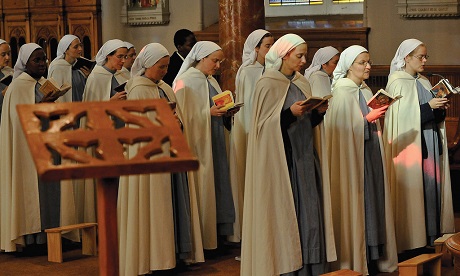Religious sisters all over the world are burning out.
The International Union of Superiors General (UISG) in Rome has set up a three-year study to find ways to respond to religious sisters’ needs.
Stress and burnout are major reasons many women abandon religious life.
The UISGs initiative was highlighted in the monthly women’s supplement of L’Osservatore Romano, which is the official Vatican newspaper.
The article prompted Pope Francis to open a house in Rome to welcome and give assistance to former sisters.
Of the world’s 650,000 women religious, it appears burnout is causing a weakening of vocations. Sisters who feel overworked and exhausted are leaving.
This has caused concern at the Vatican.
“When you are a religious, you don’t listen to one another, it is still frowned upon in many congregations,” says a professional facilitator who regularly works with sisters.
As work is often linked to their service commitment, failing in work is often seen as failing in their vocation.
“They are so profoundly dedicated to their mission, that they sometimes neglect personal needs such as sleep or even food and recreation,” a psychotherapist says.
“They have an extremely high and even unattainable ideal, they work for Christ, follow him with their whole being, and not to achieve this any more calls into question their faith.”
Commenting on the sisters’ situation, a priest who is also a medical doctor says burnout is a “disease of giving”.
Burnnout is therefore particularly hard on social or service professions.
When the vocation involves “giving one’s life”, there are no limits, he says.
A man who set up a shelter for people suffering from burnout three years ago aims to get residents – which include vowed religious – back on their feet.
“Some people can’t set limits. There is a kind of headlong rush to excess, which is accentuated by a misguided spirituality,” he explains.
A literal reading Saint Ignatius of Loyola’s prayer for generosity is an example of this:
“Teach us, good Lord… to give and not to count the cost, to fight and not to heed the wounds, to toil and not to seek for rest, to labor and not to ask for any reward,” it says.
Whether nuns are more susceptible to burnout than others is a matter of opinion.
The answer seems to be “not necessarily”.
Normally sisters benefit from spiritual accompaniment, which can help them accept their fragility and human condition.
However, “God’s call can get buried under an agenda. ‘Doing’ can make us forget the reason why we follow Christ,” says one sister.
“Religious life is not primarily about ‘doing’, but being with God,” she says.
Source
